He was the epitome of a Victorian landed gentleman, creating the horticultural haven of Inverewe Gardens on Scotland’s far west coast, a National Trust for Scotland property now enjoyed by thousands every year.
But Osgood Mackenzie’s private life was very far removed from the tranquil paradise he forged from a stretch of barren coastline just north of Poolewe.
Where Osgood’s intense labours resulted in a garden with temperate microclimate in which rare and tender plants could flourish, his home resembled more of a viper’s nest.
At its heart, a clash of two formidable women, Osgood’s mother Lady Mary, and his wife Minna Moss, with his little daughter Mairi in the middle.
It has all the ingredients of high drama— a bitter divorce, estrangement, and a high profile court case in which Osgood didn’t come out well.
How did it come to that, from the wellspring of such a respected aristocratic family?
The roots may lie deep in Osgood’s uncomfortable financial circumstances.
Osgood (1842-1922) was the third son of Sir Francis Mackenzie, fifth baronet and twelfth laird of Gairloch, but as he was the fruit of a second marriage, he inherited none of the good fortune of his father’s titles and land.
These went to his half-brother Kenneth after Sir Francis’s death, a year or so after Osgood was born.
So his mother, Lady Mary Mackenzie, nee Hanbury, stepped up to ensure her son’s future, buying him the estates of Inverewe and Kernsary, near the family seat of Gairloch, when he was 20.
Osgood’s mother took control
This was one of many important interventions Lady Mary made in her mission to safeguard Osgood’s interests— and it paved the way for a most turbulent marriage, and the estrangement of daughter Mairi from her mother.
The disturbing dynamics of the three most important women in Osgood’s life have been explored in a new play by Rob Mackean of Arkle Theatre Company, and will be performed at the gardens on November 4.
The Curious Case of Osgood Mackenzie premiered at the Royal Scots Club at the Edinburgh Festival this summer to a warm reception, and now appears for one day only in its rightful home of Inverewe Gardens.
Rob, of Edinburgh and Melvaig, is a chartered accountant and founder member of Arkle Theatre Company.
Curious about Osgood’s personal life
Inverewe Gardens had always been a steady fixture for Rob during 30 years visiting Wester Ross, prompting his curiosity about Osgood Mackenzie.
Initially, he couldn’t find out much, even from Osgood’s own book, A Hundred Years in the Highlands.
He said: “The book is interesting, but doesn’t really reveal much about Osgood apart from typically Victorian contradictions of spending a lot of time killing animals and then wondering where they had all gone.
“It felt shallow, missing his family life although there was a lot about his mother, and his father dying.”
High-profile divorce
Then Rob found Pauline Butler’s Eighty Years in the Highlands, which has details of Osgood divorce case.
He said: “That coloured things in around Osgood. I mentioned to Arkle that I thought it would make a good play so we announced it last December and staged it this summer.
“I’ve always had strong female role models, my mother is something else and still going strong at 94, my wife is a cancer consultant in Edinburgh and my daughter is in her final year of medicine at Dundee.
“I thought, take someone of my daughter’s age, marry her to someone much older and with no strong male role models because Osgood lost his father when he was an infant, and was brought up by his mother, clearly a domineering character.
“Then sit back and see what happens, how would my daughter have reacted to all of this?”
Minna was from South Liverpool
Osgood’s wife Minna was from a monied family in South Liverpool.
“She came across as somebody with some spark because she put up with an awful lot, and to my mind was clearly wronged.
“There is some ambiguity about whether it was Osgood’s mother Lady Mary, and her bringing up of him which coloured his attitudes to women, or was it him, even without that, although the court reports imply without his mother he might have settled down and got on with being a decent husband.
“But it can be too easy to look at what went on through the lens of the 21st century.”
Minna found herself in Osgood’s orbit
Minna’s wealthy father was in the habit of renting property in the area for summers of fishing and shooting, and in 1875 Minna found herself staying at one of them.
She met Osgood at the Northern Meeting in Inverness, and they seemed to hit it off.
But there were early indications of trouble ahead.
Minna turned down his first offer of marriage as she refused to live anywhere where her mother-in-law was part of the household.
This was eventually agreed upon — but it appears to have been a hollow victory, with the promise broken almost immediately.
Osgood and Minna marry
The couple married in London with the Bishop of Guyana presiding.
On honeymoon in South Liverpool and Ireland, it appeared Osgood ignored Minna and went off on long walks.
Significantly, Lady Mary Mackenzie did not attend the wedding, and spent her time re-writing Osgood’s will to the effect that Inverewe House was not to go to Minna in the event of his death.
It arrived while they were on honeymoon, drafted in Lady Mary’s handwriting as they were apparently ‘too poor’ to afford a lawyer.
At home, the estate was unproductive and struggling, so Minna’s £20,000 dowry most have been a considerable attraction in the mind of Lady Mary.
Was money the driving force?
Perhaps it was the only attraction which would make her allow another woman in Osgood’s life.
The disastrous die was cast.
Rob said: “Osgood’s view was that women ought to obey their husbands unquestioningly in every respect, old-fashioned even then.
“She can’t have any freedom, or any funny ideas about running her own household and she ought to bend to his every will.
“Clearly Minna had an intellect and her ideas, and didn’t bend.
“He established that his rights over the daughter Mairi were absolute, and fought her on the basis that he could do whatever he wanted, because he was the father.”
Osgood checked up on his rights over his daughter
Osgood had even consulted a lawyer about his rights over the child when Minna was pregnant, and was told that in Scotland, they were absolute.
“Minna comes across as a very modern character, ” Rob said. “She didn’t want to abide by what was expected her, and she had money from her father so could be independent.
“Despite all of that she was still treated incredibly badly.
“She had to put up with this constant going to lawyers to find out rights which is never a good place in a relationship, and the blatant disregard for the written promise that Lady Mary wouldn’t live in the house with them, which was revealed in the court case.
“There was constant undermining, almost gas-lighting of Minna, constant caviling about money.
Mairi became a weapon in the domestic drama
“Then the daughter became a weapon, Osgood having established what his rights were over Mairi.”
Things came to a head in a particularly traumatic scene when Mairi was taken away from Minna by force, by Osgood and his mother.
“It came out in court reports that Minna had said that she wanted Mairi to be with her for breakfast, and Osgood had complained the he wanted to see her over breakfast as he was going out for the rest of the day.
“Minna was forcibly restrained and Mairi was taken away from her.
Bruising around the wrists
“At which point she left, and Osgood’s brother Sir Kenneth witnessed that he saw the bruising around her wrists, which wasn’t trivial.
“Emotional abuse turned physical, coercive behaviour through a modern lens.”
Sir Kenneth let Pool House out to Minna, directly across from Inverewe House.
Minna got limited access to Mairi, and whiled away her distraught hours carving Lancastrian roses into the staircase, a defiant gesture emphasising her own origins.
“Roses are beautiful but they have thorns,” Rob said. “It may well have been her way of sticking two fingers up at the Mackenzies, saying I’ve got thorns too.”
High profile court case ensues
Meanwhile, the family linen was washed in a very public and high profile court case in which Osgood sued Minna for desertion- and lost.
However, it didn’t make much difference in the end.
Her regulated access over her daughter came to an end when Mairi reached the age of 12.
At this point Mairi wrote to Minna saying that she was electing to reside with her father alone, and Minna left for Liverpool.
Solicitor Majella O’Neill, a family law expert who lives near Inverewe Estate has spent spent many long hours studying the divorce trial papers.
The divorce raises eyebrows
She said: ‘Osgood’s attempts to divorce Minna and later, following her death in 1909, to challenge her last will and testament, raised many an eyebrow, including mine.
‘Was this just a case of a young English socialite marrying an older Highland gentleman, with dislocated expectations of a charmed life?
“Or was it a domineering husband with an interfering mother who orchestrated the marriage for purely fiscal reasons, then sought to airbrush his wife out of the picture?”
And yet Osgood had a functional relationship with his daughter, Rob said.
Mairi took over Inverewe
Mairi became a talented plantswoman, and went on to run Inverewe Gardens after Osgood’s death in 1922, eventually handing them, with an endowment, to the National Trust for Scotland in 1952.
She died a year later.
The Curious Case of Osgood Mackenzie runs at the Osgood Café, Inverewe Gardens on Saturday 4 November with two performances: the first at 11am and the second at 2.30pm.
More like this:
Celebrating ‘the impossible garden’ at Inverewe on centenary of founder’s death
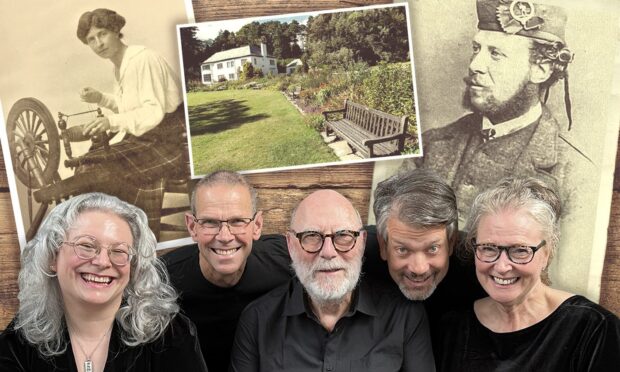
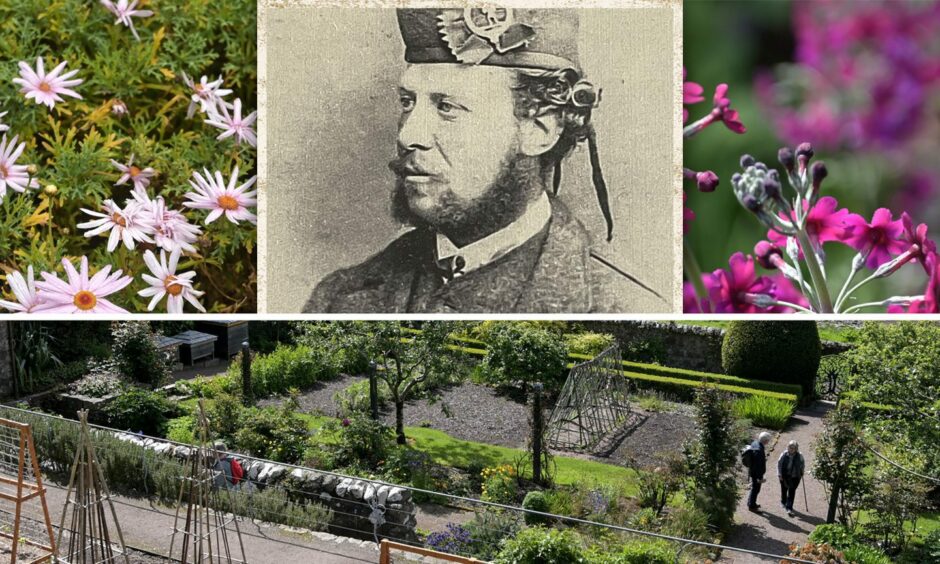

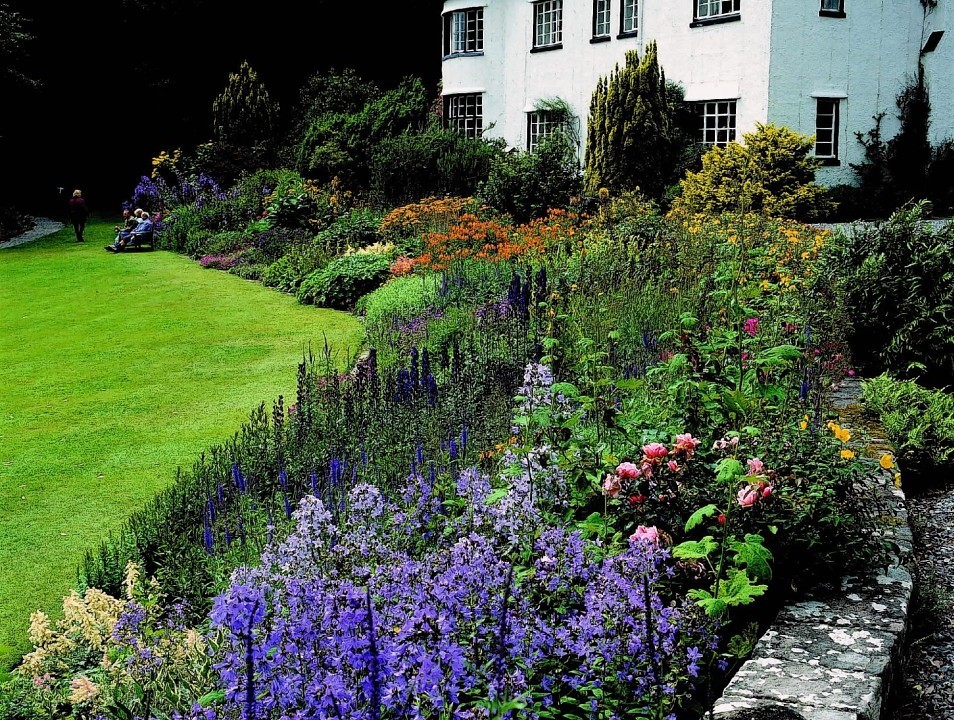
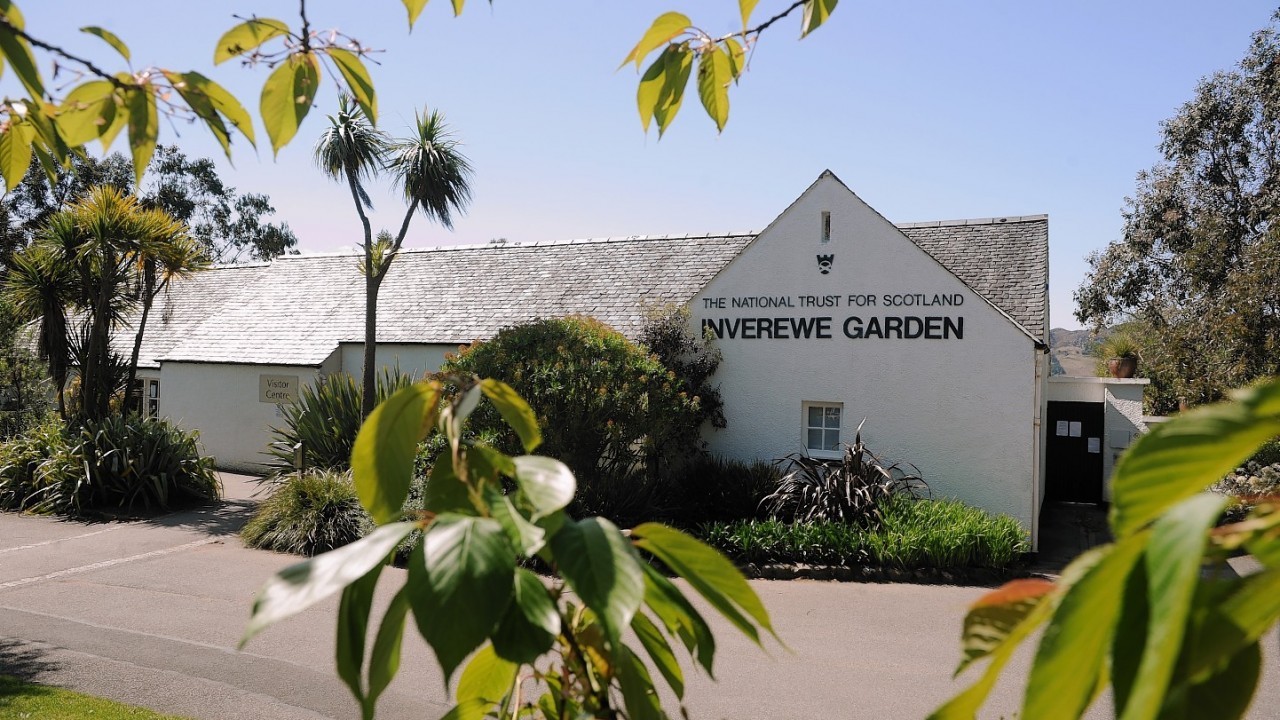
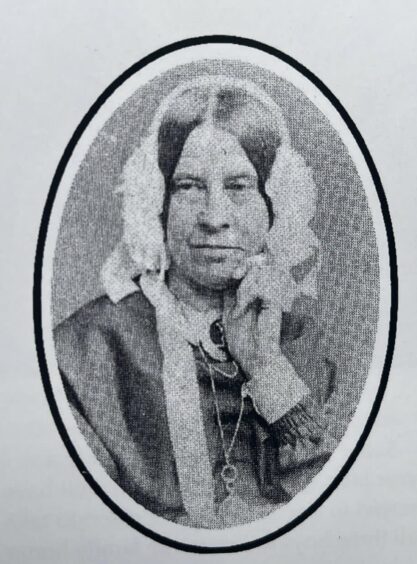
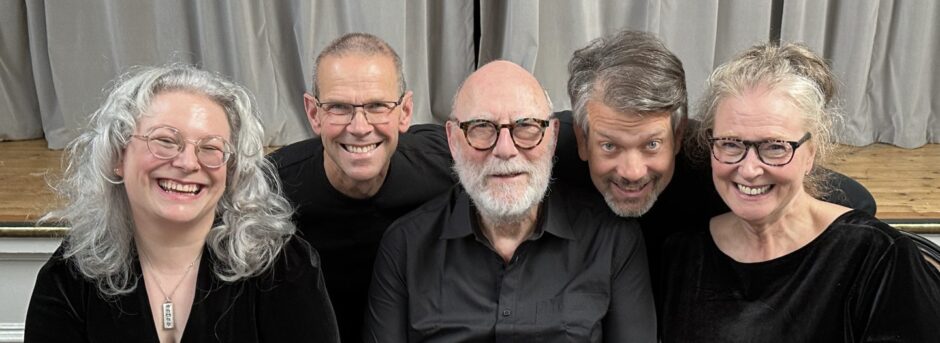
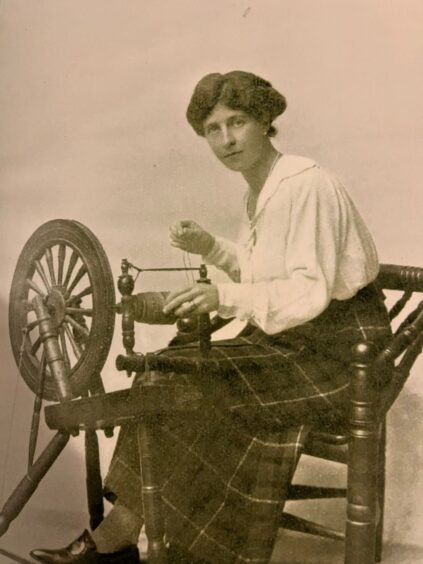
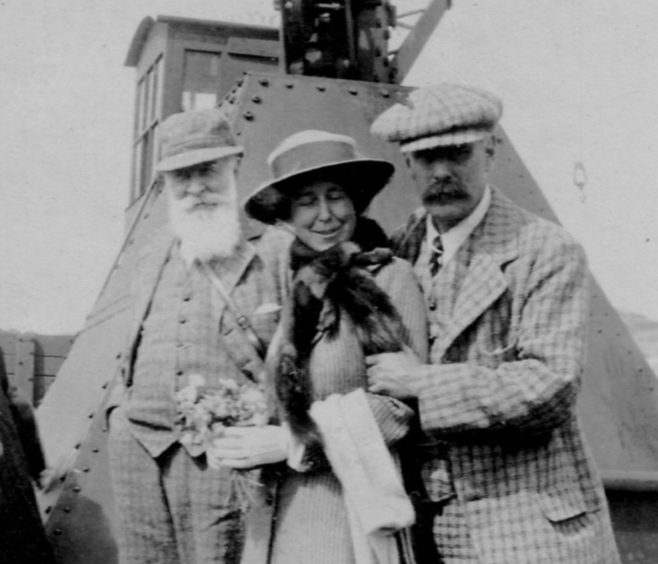
Conversation